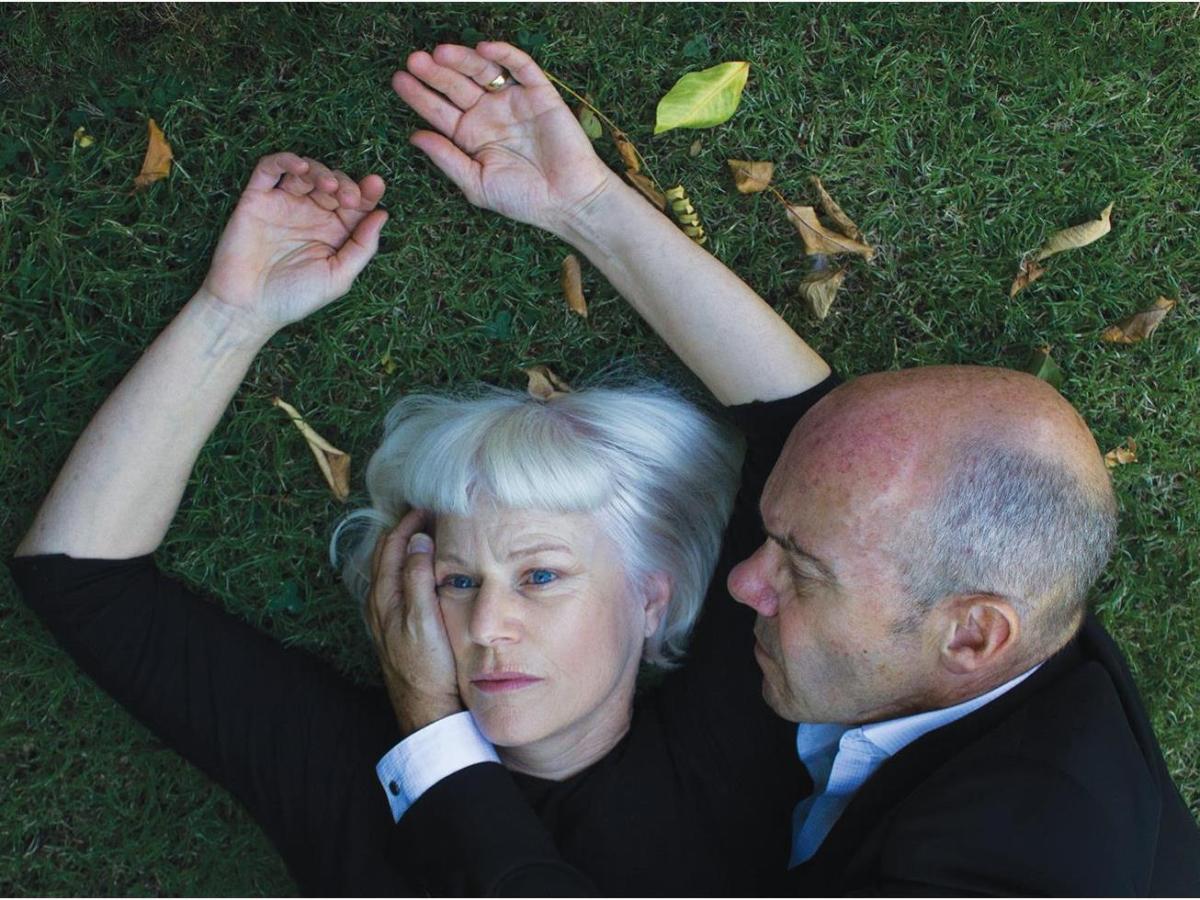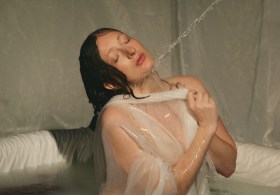Image by Oscar Strangio
Is it possible to be content with your life and immensely lonely at the same time?
Can a person be clear-headed and intelligent, while also severely lacking any mental stability?
Can those involved in a miserable marriage ever be truly happy as individuals?
L’Amante Anglaise is an intimate play with incredibly strong moments that proposes that all of the above is possible. Originally written as a novella by French author Marguerite Duras, it takes place in an interview room at a police station, where a gruesome murder case is being explored. A woman has been cut into pieces and thrown off a bridge onto the carriages of trains heading to various parts of the country. Her head is mysteriously missing, and the murderer has been arrested after publicly confessing to the crime in a café in the French village where she lives.
The play is made up of two separate interrogations; the first between an anonymous interviewer (Jillian Murray) and Pierre Lannes (Robert Meldrum), the deflated husband of the murderer. Pierre is a man of routine, who was never really happy with his marriage. He claims to regret everything he has ever done with his life, and speaks not from the heart, but out of habit. He describes in detail the events leading up to and following on from his wife’s brutal crime, and provides the audience with an understanding of the bleak circumstances surrounding this tragedy.
Jillian Murray portrays Pierre’s wide-eyed wife who speaks openly about her crimes in the second and final interview, in which Meldrum takes over the part of the nameless interrogator. Claire is an energetic and easily distressed woman, with solid opinions about what she likes and dislikes about her life. These things are seemingly insignificant, but are clearly incredibly important to her, such as having a clean bedroom and not encountering anyone who is able to sleep or eat well. She is portrayed as quite opposite to her husband, in that she is somewhat comfortable with her mundane life and speaks spontaneously about her emotions.
Both interviews captivate through dialogue alone, as the characters remain seated for the entire play. The two scenes are starkly different from one another in tone, and somehow manage to remain engaging while not developing an extensive plot; instead, L’Amante Anglaise focuses on analysing human emotion rather than forming a structured storyline. It explores the things that motivate us and those that defeat us, and the ways in which we express ourselves when direct verbal communication is not a preferred method.
Murray’s performance is stellar, and her transformation from neutral interviewer to gentle murderer is brilliantly seamless. She combines a quiet confidence with sheer vulnerability in a way that is wonderful to watch. Her portrayal of Claire’s ongoing positivity in a life that is far from perfect is fascinating, and the sudden rage she displays during a particular climactic moment is both chilling and moving.
Meldrum also performs excellently as bittersweet Pierre, with his honest reflections and defeated attitude towards life. It is clear how much work has been thrown into every single sentence spoken by the Lannes couple; the dialogue is as fluid and raw as though it were real life. Director Laurence Strangio has ensured that all stagecraft elements are as simple as possible to allow for complete attention on Duras’ text, which is thrown back and forth across the stage in a rather poetic tennis match.
L’Amante Anglaise requires experienced actors and a talented, text-focused director to truly succeed, and this performance certainly has all of these vital elements. It is beautifully poignant, emotionally powerful and a little unnerving; a delicate analysis on what it takes to experience true happiness.
Rating: 4 out of 5 stars
L’Amante Anglaise
Written by Marguerite Duras
Translated by Barbara Bray
Performed by Robert Meldrum and Jillian Murray
Directed by Laurence Strangio
Lighting design by Chris Molyneux
Technical assistance by Hayley Fox
La Mama Theatre, Carlton
15 – 26 July






